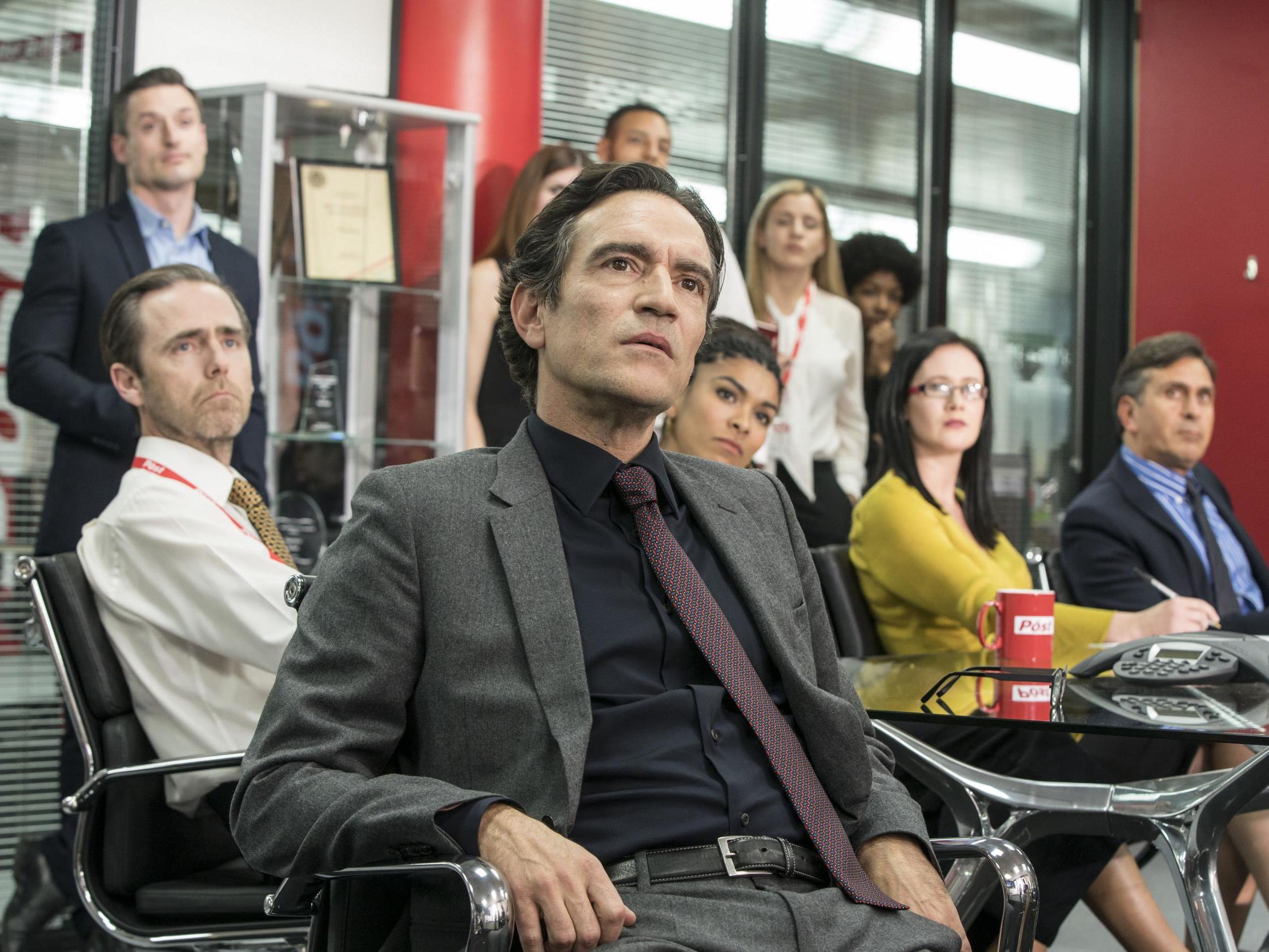Press review: New BBC series is more page 15 news than world exclusive
This disappointing opener tracking a fictional tabloid doesn't really have legs

Your support helps us to tell the story
From reproductive rights to climate change to Big Tech, The Independent is on the ground when the story is developing. Whether it's investigating the financials of Elon Musk's pro-Trump PAC or producing our latest documentary, 'The A Word', which shines a light on the American women fighting for reproductive rights, we know how important it is to parse out the facts from the messaging.
At such a critical moment in US history, we need reporters on the ground. Your donation allows us to keep sending journalists to speak to both sides of the story.
The Independent is trusted by Americans across the entire political spectrum. And unlike many other quality news outlets, we choose not to lock Americans out of our reporting and analysis with paywalls. We believe quality journalism should be available to everyone, paid for by those who can afford it.
Your support makes all the difference.A new peak time BBC1 drama series about journalists and journalism? What’s not to like?
Well, quite a lot actually, and not just because journalists are not an especially likeable bunch. It’s because Press, which went “off stone” last night for the first of its six episodes, is a bit too cliché-ridden, its characters two-dimensional stereotypes, floating around like dead fish in a tank. Not least for that reason, it is an unbelievable sort of story. Or, as we say on Fleet Street, it doesn’t really have any legs.
Duncan Allen (Ben Chaplin) is the hard-bitten editor of The Post, a thinly disguised Sun / Mirror / Star. He inhabits and dominates the grubby end of the business – the “entertainment” side, as he describes it – accurately enough: “Life’s hard. Our readers want a giggle.” Allen has a couple of surprising contours to his character, occasionally reflecting eloquently on his life and craft, but Chaplin plays him as a caricature.
Many famous tabloid editors, from Piers Morgan to Paul Dacre, don’t actually look like the devil incarnate. In fact, they are physically unprepossessing, as if they’ve wandered out of the boardroom at a firm of management consultants. It might have been better to cast against type for the role, add some nuance, and treat the audience with a little more respect. Like newspapers do, obviously.
The same goes for the hard-pressed, earnest, female news editor of a lightly camouflaged Guardian, Observer or, dare I say, Independent. Presented in too-heavily drawn contrast to Allen, Holly Evans (Charlotte Riley) is burdened as if from birth with the “ideals” of journalism, and, all too obviously, rendered humourless, friendless and emotionally deadened by them. A bitchy rival on The Post, Wendy Holt (Susannah Wise), a rough amalgam of Jean Rook (Google her), Katie Hopkins and Amanda Platell, tells poor Holly that she inhabits a sort of miserable, thankless nothing-world between proper out-and-about journalism and management: “A hundred emails in your inbox but not a single one inviting you out for a drink.” Hurtful, but true. Evans, who is no Holly Golightly, reacts badly to the provocation.
To be fair, we learn much later that Holly’s flatmate was an MI5 informer run over by a police car that failed to stop – all denied by the coppers. Suspicious, no? CCTV footage of the incident has been acquired by The Post, and Holly confronts Mr Editor Allen on the way to work. Allen vaguely recognises her name from a hatchet job she’s done on him, and quotes it back at her: “A misogynist, overbearing, well-oiled bully – an offence to journalism.”
Now, I’ve known quite a few editors – some uncomfortably close to that description – but none would do what Allen does shortly afterwards, sending her grainy footage of the last moments of her friend’s life. He does so not out of sadism, but some sort of philanthropy. No: that is simply not believable.
I do like the story of the cub reporter (Paapa Essiedu) out on his first “death knock”, nervously attempting to get a reaction from the grieving parents of a (closeted) gay footballer who’s taken his own life. The parents didn’t even know their boy was gay, let alone that he was being blackmailed and was on drugs. It’s gruesome, in the way that so many stories are, and The Post’s splash about this “gay shame” case breaks the first five clauses in the Society of Editors’ Code of Practice.
Yet, as I say, there’s too much going on that is unbelievable to make Press a compelling tale. The Post’s owner, George Emmerson (David Suchet), is a convincing man of money, who looks as though he’s done well out of online gambling or porn. The flaw, which even Suchet can’t flatten out, is that he seems to contradict himself so violently about what he wants his editor to deliver – even by the usual proprietorial standards of ambiguity.
According to the pre-publicity, the makers, including writer Mike Bartlett, spent a long time talking to “seasoned” journalists, learning our funny little ways, picking up the jargon and the odd traditions of the trade. So they did their homework, but the results are still disappointing so far. Press is the equivalent of a news story you’d hoped would be a world exclusive, but winds up more like a nib (news in brief) on page 15.
Join our commenting forum
Join thought-provoking conversations, follow other Independent readers and see their replies
Comments